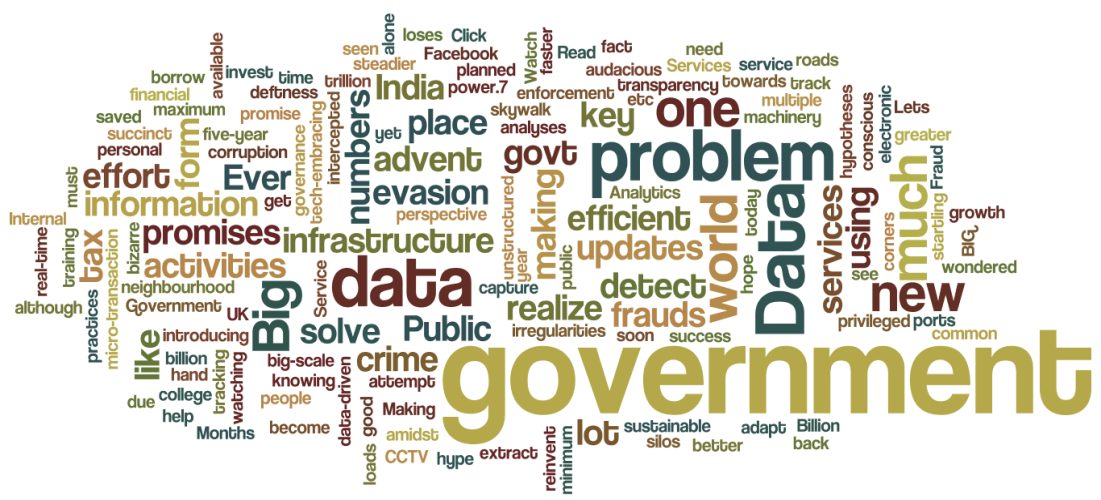3 Months back while the world was watching, amidst much hype, a new government announced its success with a lot of promise to one and all.
One of those promises was that of minimum government, maximum governance. This statement is as audacious as much as it’s succinct. The new government promises to reinvent public service, making it more efficient, introducing transparency and steadier and sustainable growth. With a government more tech-embracing than ever and the advent of fingertip technology to the people, a lot can be hoped. How much is achieved is yet to be seen.
To solve a problem, knowing the problem clearly is the key. This key is held by the huge loads of Data that we have hidden in the organizational silos of our government. At Gramener, we attempt to solve this problem through richer, better data-driven insights, making it available to the common Joe. The advent of Big Data in today’s world is not unknown. Big Data is a term that everyone is using today. From board rooms to college canteens, it’s now become the buzz in the more privileged world.
Fraud Detection
Some stats to put the problem at hand in perspective:
$314 billion is what India loses from tax evasion annually, depriving it of funds for investment in roads, ports and power.7 With so little revenue, the government must borrow more to fund a planned $1 trillion five-year infrastructure program.
$462 Billion is what India lost due to tax evasion, crime and corruption post-Independence.
Click here to see more on govt. spending.
The more startling fact is that this money is not only from the big-scale frauds that we read about in the dailies. Small, unreported frauds add up and form such bizarre numbers.
What if we could track these numbers to their last rupee like in the financial services industry? What if we could have systems to detect irregularities in each micro-transaction? Government should invest in the infrastructure to capture data from all corners of the government machinery to one place. Read about how the UK govt saved 33bn a year using Big Data Analytics.
How about Internal Security?
CCTV footages, RFIDs and scanner machines and other electronic data, although unstructured but when used with deftness, Wirelessly intercepted information, Internet browsing activities can really help extract useful information for analyses to detect crime, terrorist activities and tracking wrongdoers faster and easier and way more efficient.
Law enforcement agencies need to adapt to such practices for the greater good. This requires a conscious effort towards skill acquisition, training etc but it’s worth the effort.
Public Services
Ever thought of filling that form for your PAN-Card purely online and getting it at your doorstep without hassles. Ever wondered what it means to get updates about that skywalk in your neighbourhood, its status real-time on that smartphone like your Facebook notification. With multiple sources of data and your details integrated into one place, your updates, services can be more and more personal.
Will there be a time when we realize the above is not a hypotheses alone? Lets hope our governments realize it soon. Watch this space out for some more thoughts on how having the data is the new necessity.

